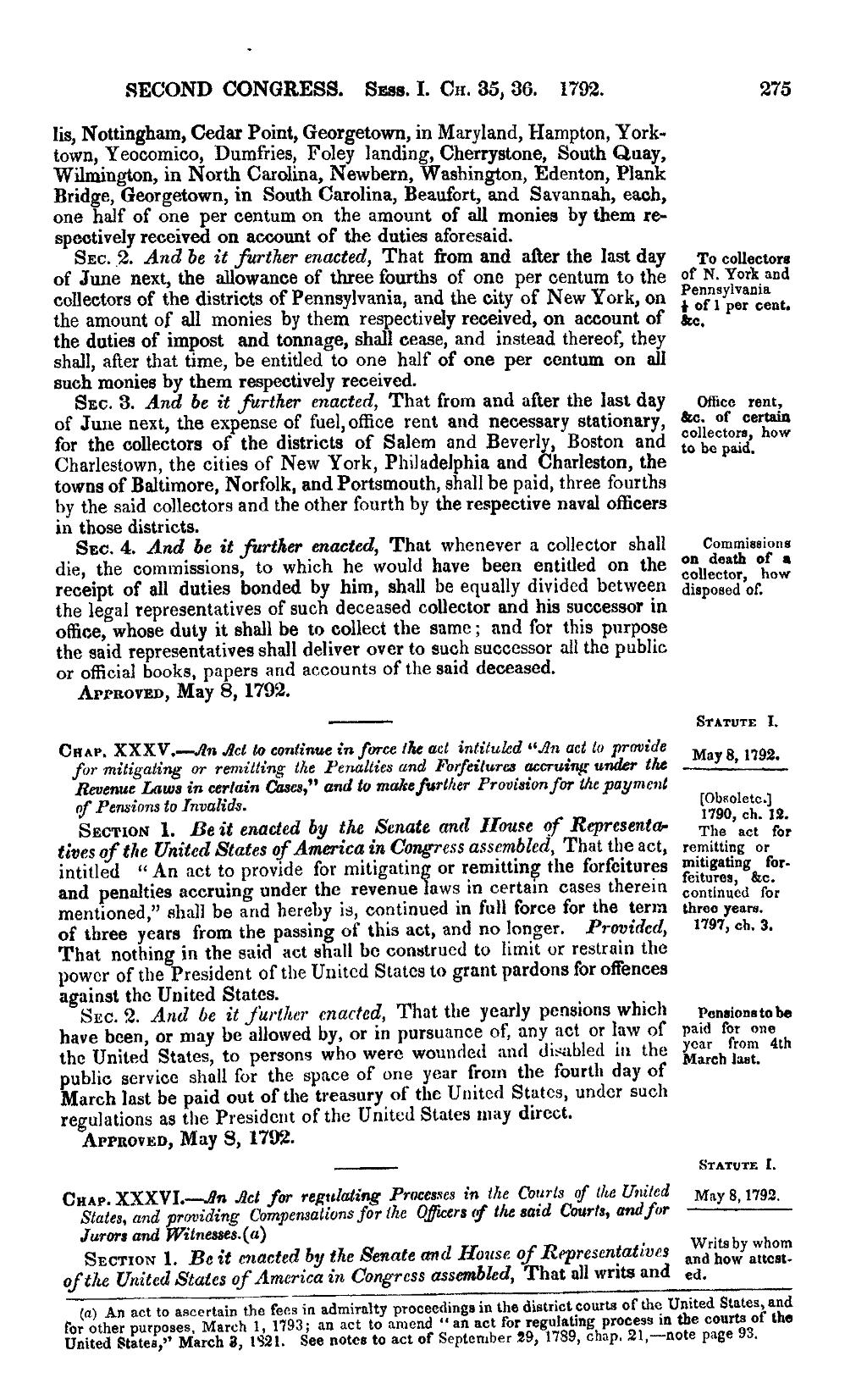Nottingham, Cedar Point, Georgetown, in Maryland, Hampton, Yorktown, Yeocomico, Dumfries, Foley landing, Cherrystone, South Quay, Wilmington, in North Carolina, Newbern, Washington, Edenton, Plank Bridge, Georgetown, in South Carolina, Beaufort, and Savannah, each, one half of one per centum on the amount of all monies by them respectively received on account of the duties aforesaid.
To collectors of N. York and Pennsylvania ½ of 1 per cent. &c.Sec. 2. And be it further enacted, That from and after the last day of June next, the allowance of three fourths of one per centum to the collectors of the districts of Pennsylvania, and the city of New York, on the amount of all monies by them respectively received, on account of the duties of impost and tonnage, shall cease, and instead thereof, they shall, after that time, be entitled to one half of one per centum on all such monies by them respectively received.
Office rent, &c. of certain collectors, how to be paid.Sec. 3. And be it further enacted, That from and after the last day of June next, the expense of fuel, office rent and necessary stationary, for the collectors of the districts of Salem and Beverly, Boston and Charlestown, the cities of New York, Philadelphia and Charleston, the towns of Baltimore, Norfolk, and Portsmouth, shall be paid, three fourths by the said collectors and the other fourth by the respective naval officers in those districts.
Commissions on death of a collector, how disposed of.Sec. 4. And be it further enacted, That whenever a collector shall die, the commissions, to which he would have been entitled on the receipt of all duties bonded by him, shall be equally divided between the legal representatives of such deceased collector and his successor in office, whose duty it shall be to collect the same; and for this purpose the said representatives shall deliver over to such successor all the public or official books, papers and accounts of the said deceased.
Approved, May 8, 1792.
Statute Ⅰ.May 8, 1792
[Obsolete.]
Chap. XXXV.—An Act to continue in force the act intituled “An act to provide for mitigating or remitting the Penalties and Forfeitures accruing under the Revenue Laws in certain Cases,” and to make further Provisions for the payment of Pensions to Invalids.
1790, ch. 12.
The act for remitting or mitigating forfeitures, &c. continued for three years.
1797, ch. 3.Section 1. Be it enacted by the Senate and House of Representatives of the United States of America in Congress assembled, That the act, intitled “An act to provide for mitigating or remitting the forfeitures and penalties accruing under the revenue laws in certain cases therein mentioned,” shall be and hereby is, continued in full force for the term of three years from the passing of this act, and no longer. Provided, That nothing in the said act shall be construed to limit or restrain the power of the President of the United Slates to grant pardons for offences against the United States.
Pensions to be paid for one year from 4th March last.Sec. 2. And be it further enacted, That the yearly pensions which have been, or may be allowed by, or in pursuance of, any act or law of the United States, to persons who were wounded and disabled in the public service shall for the space of one year from the fourth day of March last be paid out of the treasury of the United States, under such regulations as the President of the United States may direct.
Approved, May 8, 1792.
Statute Ⅰ.May 8, 1792
Chap. XXXVI.—An Act for regulating Processes in the Courts of the United States, and providing Compensations for the Officers of the said Courts, and for Jurors and Witnesses.[1]
- ↑ An act to ascertain the fees in admiralty proceedings in the district courts of the United States, and for other purposes, March 1, 1793; an act to amend “an act for regulating process in the courts of the United States,” March 3, 1821. See notes to act of September 29, 1789, chap. 21,—note page 93.
